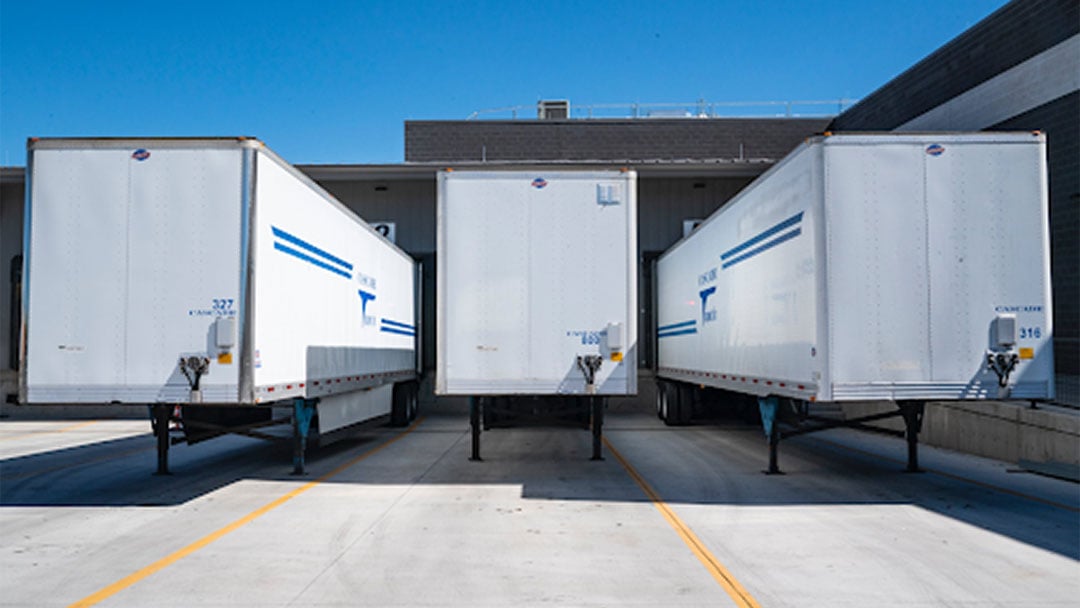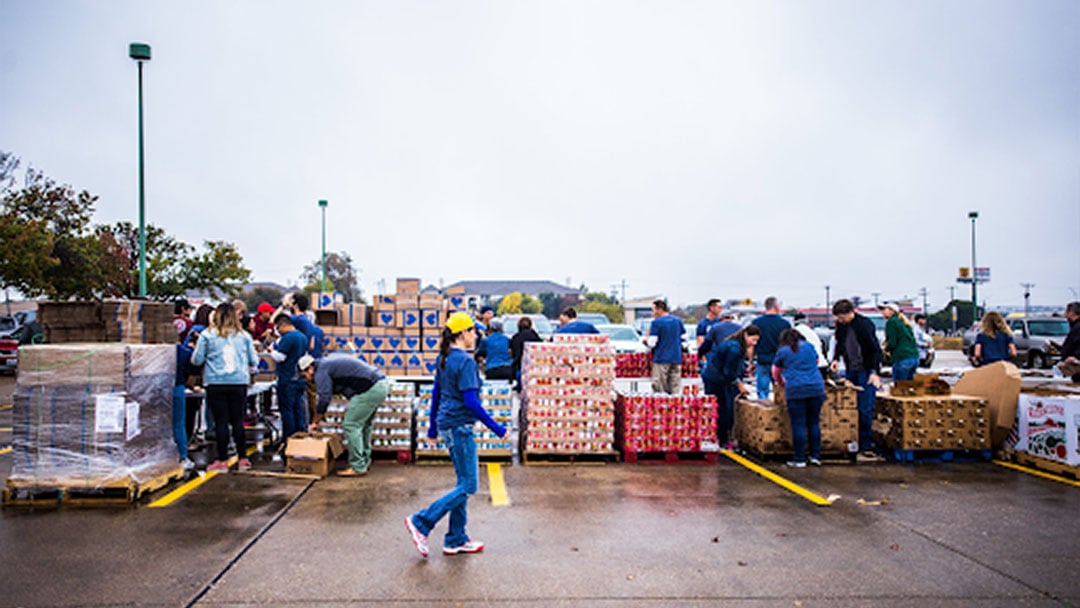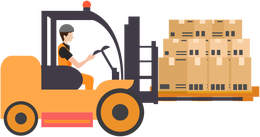
Some Americans may have heard of the term “supply chain infrastructure” before without fully understanding it. And the chances are good that they never thought about it daily. But now, global and local supply chain infrastructures are probably all anyone can talk about.
The pandemic-enabled supply chain infrastructure inflation problems the world is enduring now may last well into 2024, if not longer. Inflation rates have surged to levels not seen in the past 40-years.
When thinking of a global supply chain infrastructure, it helps to imagine imaginary chains of transport commerce encircling the globe. But the chains don’t restrain the world’s market; they help keep them moving.
Imagine each link in the chain as the length of distance or transportation hub where goods are transported, delivered, warehoused, and then shipped again as per the needs of local businesses.
And the supply chain infrastructure system is only as strong as its weakest link in the system. And the vital thing to remember is that the global supply chain system, and the various carriers who transport goods, are legally and financially beholden to strict time schedules.
The current supply chain infrastructure is so crippled because shipping orders are made long in advance before they ship. International and domestic shipping orders are made in advance in precise circumstances to be shipped on a specific schedule.
When there are bottlenecks, disruptions, and delays in transport, then the price of doing business dramatically goes up for everyone on a domestic and international scale. And when we say “everyone,” we mean everyone from everyday consumers, shipping conglomerates, and the carriers in the midst of the supply chain system.
And the consequences of these supply chain problems are especially bad for less than truckload, or LTL, carriers. Carrier operations and transaction rates were increasing in fiscal quarters when they were historically stable, relatively speaking, due to the worsening supply chain infrastructure issues.
So, let’s explore some frequently asked questions about the LTL carrier industry. We will ask and answer questions relative to the operation of carriers like:
- ABF
- Double D Express
- Estes
- FedX
- Holland
- Old Dominion
And we will explore these LTL carrier FAQs to differentiate these providers from the professional services offered by Dynamic 3PL.
Dynamic 3PL is your one-stop logistics and solutions provider for supply chains, warehousing, transportation, contract packing services, and more.
Related: Dynamic 3PL – About Us

What is LTL Shipping?
Before getting into the FAQ, let’s better define how LTL freight shipping operates.
Less than truckload shipping is kind of explained in its non-abbreviated form. LTL carriers transport freight that would usually be put on a tractor-trailer truck. However, when the freight load doesn’t entirely fill the capacity of a tractor-trailer truck, the freight is then shipped via an LTL carrier to save time, money, and logistics planning.
LTL carriers usually transport freight that weighs anywhere between 150 and up to 15,000 pounds. The shipping client will then pay only for the portion of the tractor-trailer occupying the freight.
Meanwhile, the unoccupied space may be contracted to transport another smaller shipment to optimize business opportunities.
LTL carrier operations reduce costs because shippers only pay for the occupied portion of the trailer. And because LTL shipments are strategically and securely packed onto pallets, they are less likely to arrive damaged.
Shippers who use LTL can access additional services like inside pickup and delivery or liftgates. And LTL packages can be tracked in transit via numerous methods like PO number, bill of lading, shipping reference number, PRO number, and so on.
Now let’s explore some common questions asked about LTL carrier shipping.
Why do Insurance Coverage Rates Vary on a Standard LTL Transport Vs. Spot/Volume LTL Transport?
Depending on available lane capacity, LTL carriers are working to give shippers a fair price when it comes to spot/volume LTL shipments. Consider – the insurance liability rate for spot/volume LTL shipments is usually just $1 per pound.
Depending on your circumstances, it can be a great deal because you cut down transit time and some liability coverage costs simultaneously. It’s a good option to consider if you are only used to shipping via standard LTL carrier services.
What Are Some of the Benefits and Drawbacks of Shipping Via LTL Carrier?
Shipping freight via an LTL carrier is a lot cheaper than shipping an entire tractor-trailer load. And that is because LTL freight shipments occupy less than the full transport capacity of the trailer.
However, some LTL benefits have bureaucratic drawbacks. Transit time can sometimes be longer for LTL carriers. Just because the tractor-trailer is a third, half, or two-thirds full of LTL shipments does not mean that it will leave partially empty.
The trailer will leave with one or LTL shipments and maybe smaller deliveries.
And that in turn means that the LTL shipment will make multiple stops instead of one direct trip like it was on a bus schedule.
The freight on LTL shipments is subject to more exacting standards for documentation and record-keeping.
Additionally, it pays to make sure no mistakes in contracts or preparation are made before an LTL shipment leaves. LTL carriers have delivery schedules set in stone, and shippers cannot communicate with drivers once they are in transit. LTL carrier drivers must stick to their contractually predetermined schedule and deviate from it.
LTL carrier transport is affordable, but it is non-flexible and more document-complicated than traditional truck shipping.

Why is my Scheduled LTL Carrier Freight Class so High?
There are many reasons why your LTL freight class is so high.
Is the freight being shipped highly fragile and easily damaged?
Are strategic packing methods required to make your freight secure for transit?
Are your LTL freight items of high financial value?
Have you answered yes to any of these questions? Then that is why your freight class is so high.
Make sure that your box, crate, and pack your LTL shipment so that it is securely protected and buffered from damaging other shipments in the truck.
Can You Explain the Term “Interline?”
Do you know how you order take out, but the restaurant you call can’t deliver to you? Your residence may be too far away for service.
Sometimes local business and zoning laws may prevent such activities.
These legal issues can also occur with LTL carriers.
Some LTL carriers have service areas that they are legally not allowed to enter or service. So, instead of the LTL you contracted to ship your LTL, the original LTL carrier will task a partner carrier company to ship your items in any boundary-restricted areas.
How Come I Don’t Have 2-Hours of Free Loading/Unloading Time for my LTL Freight?
As previously mentioned, LTL carriers must worry about loading or unloading freight in multiple stops on a truck, not just one delivery.
Remember the bus schedule analogy we discussed earlier?
Extended wait times cost LTL carriers, and you, a lot of money. Loading and unloading delays drive up costs, disrupt the predetermined supply chain, and can bottleneck the delivery of other shipments.
LTL carriers don’t get two hours of freeloading and unloading because they have so many smaller items to deal with at each delivery point or port instead of total deliveries.
Contact Dynamic 3PL for professional consultation on your various shipping needs.
Related: Protein Drink Packaging: Everything Your Business Needs to Know



